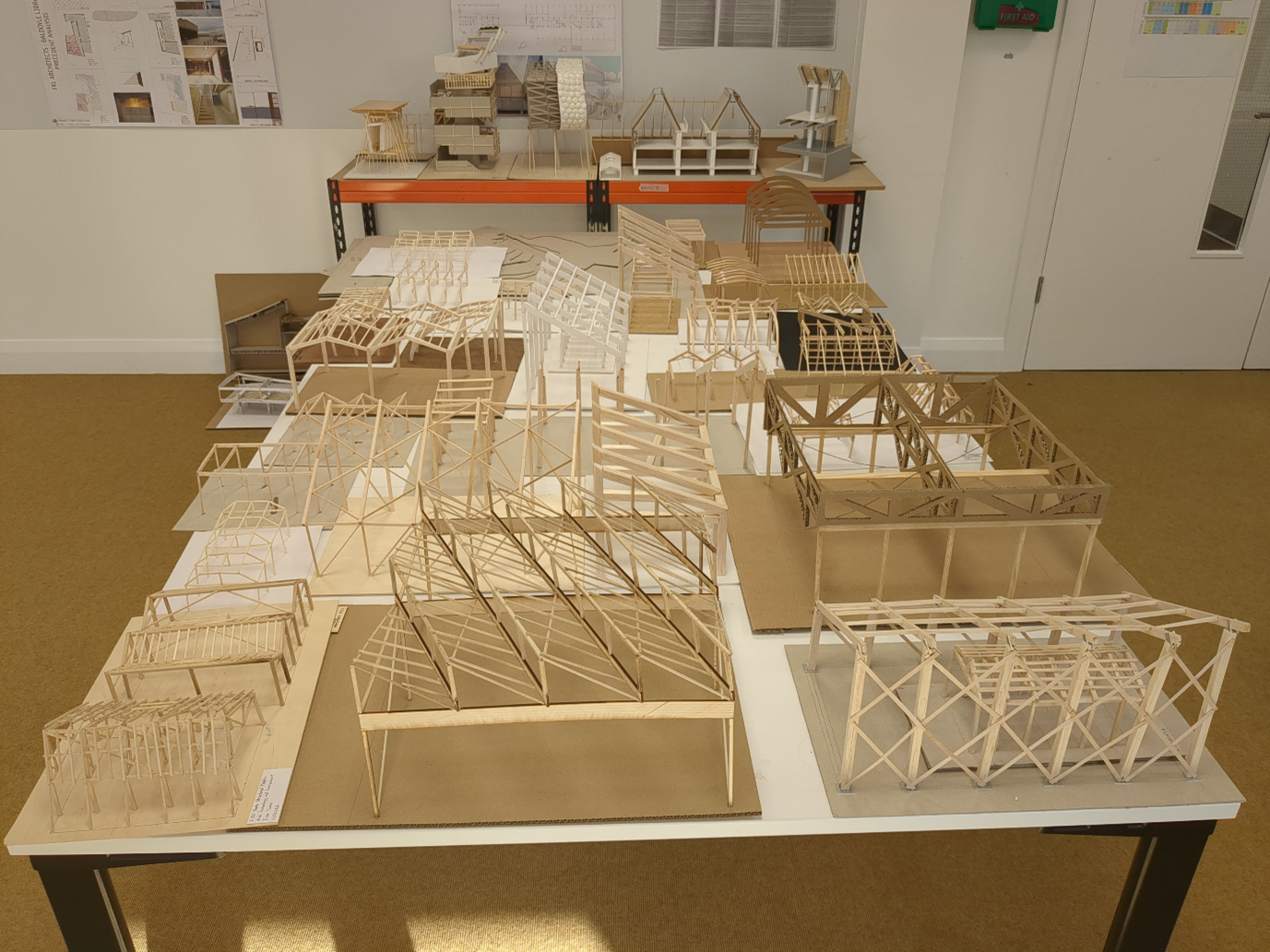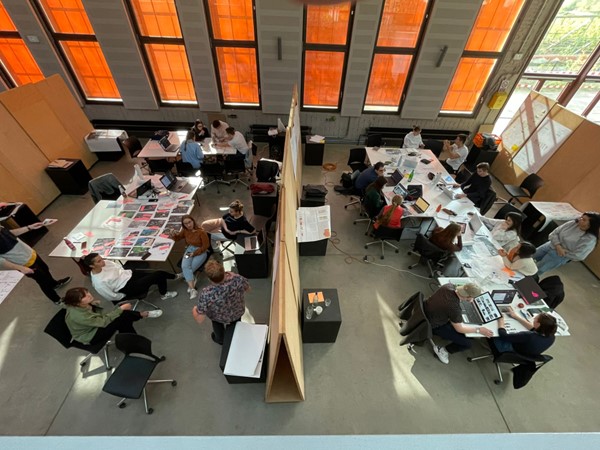
Find information on how to make a Protected Disclosure under the external procedures in place in the HEA.

Project Name
Building Change: Designing a Resilient Future through Architecture Education


The Built Environment accounts for 39% of global greenhouse gas emissions, with operational emissions accounting for 28%, and embodied emissions, associated with the construction of new buildings, accounting for the remaining 11%. To enable the global efforts to reduce carbon emissions, the Architecture, Engineering and Construction (AEC) industry requires graduates equipped with the knowledge and skills to address the challenges that the industry, and society, face. This necessitates the reform and refocussing of related academic programmes, the upskilling of academic staff to ensure these reimagined programmes are underpinned by a continuing culture of academic excellence related to the fields under consideration, and the support of industry, the professional bodies and government.
To answer this challenge, and under the auspices of the Human Capital Initiative administered by the Higher Education Authority, the project partners, Technological University Dublin, University College Dublin, the University of Limerick, South East Technological University, Atlantic Technological University and the Cork Centre for Architecture Education (a joint initiative of University College Cork and Munster Technological University) have come together in the Resilient Design Curricula for 21st Century Professionals project, piloting radical revision in architectural education to prioritise United Nations Sustainable Development Goals 2030 Climate Action (SDG 13.3) and Housing (SDG 11.1). We are undertaking a transformative process, reconfiguring and revising our curricula to enable our graduates to help society address the sustainability challenges.
Our approach incorporates a number of interconnected facets. A critical needs analysis will determine key skills and knowledge areas needed for future professionals and the prioritisation of these in the specific context of UN SDGs 11.1 and 13.3, working with our stakeholders to identify key skills required for the curriculum for the education of graduates with the capabilities required to meet the challenges of Climate Action and Sustainable Housing. Studio Pilots allow the project to explore the reimagining of design studio curriculum towards a problem and design based methodology of projects that confront students with Climate Action and the Housing Crisis within both their regional areas and more broader nationally. Continuous Professional Development plays a central role in the project through the upskilling of staff to contribute to the formation and delivery of the Resilient Curriculum. An overarching goal is to engage with the RIAI towards the revision of their accreditation requirements for architecture degree programmes such that they incorporate the necessary sustainability concepts and requirements.

This project is a partnership of the 6 architecture schools of the Universities of the Republic of Ireland (ROI) working towards a common purpose for the betterment of architecture education in Ireland. We are working with the support of 24 enterprise partners, the RIAI (professional body), and community groups and government. A summary of key collaborations is given below, alongside a snapshot of related activities drawn from across the project partners.
An all-day workshop took place on 10th May 2022 at VISUAL in Carlow to bring together in-person for the first time the project participants representing all seven institutions that make up the six Irish schools of architecture, with external facilitation by ACAN Education and assistance from VISUAL.
Moving forward from our initial steps, the Building Change project is collaborating with the All-Ireland Architecture Research Group to host their Annual Conference in TU Dublin (13th-15th April 2023), where a key event is a symposium with architecture students from across the country (13th April) gain insight from their experience of our initial architecture design studio pilots. We also hope to welcome architecture students from the Ulster University and Queen’s University Belfast. A further key ongoing collaboration is with SOA “Self-Organising-Architecture” to facilitate a critical needs analysis workshop on Housing, organised through SETU (March 15th 2023).
A snapshot of further collaborative activities includes the following. UCD and SAUL are engaged in a collaborative project with the local community and allied artists, historians, mapper and geographers on Clare Island. The shared design studio is a response to a critical need to develop a robust design studio curriculum that seeks coherent responses to the challenges posed by the climate emergency. Amongst further collaborations are: with the Building Reuse project – collaboration with social enterprises as real-life clients, Mother Club (UCD); Cooperation with WWETB (SETU); collaborating with ACT, who are assisting in relation to both the critical needs analysis and CPD development and engaging with (ATU). A hallmark of our HCI project is the use of guest lecturers to bring their expertise into the project for the benefit of our staff and students, including: the delivery of a series of lectures that take construction materials as the starting point for investigating architecture’s role in shaping the world we inhabit, delivered mainly online by international experts in architecture, history and engineering (SAUL); Engagement of Prof Greg Keeffe, Queens University, internationally renowned expert on sustainable design and communities, who has previously advised TU Delft and Cornell on curriculum change (UCD and CCAE); lectures by Christian Helling: ‘Building limes theory and practice. Lecture and practical demonstration’ and Brendan Hunter ‘Joinery &Timber Sash Window Construction Demonstration’ CCAE); The Constructive Idea – Skills workshops in digital fabrication led by Dr Marcin Wojcik (TU Dublin); Isolde Dillon, The Housing Agency – guest lecture (TU Dublin); and a lecture by Duncan Stewart (Dublin) “Climate Change and the Built Environment” (SETU).

The project proposal identified that it was essential to work with enterprise partners to help us achieve our goals, and some 24 enterprise partners agreed to take part in the project. Although it is quite early in the project, and the priority to date has been to initiate key academic activities (Studio Pilots, CPDs), and, in parallel, to commence our Critical Needs Analysis. However, we are working towards the establishment of an industry advisory group, and a number of initiatives have commenced with individual partners.
We are working with the RIAI as one of the key enterprise partners/project stakeholder, with representatives of the Schools of Architecture that are partners in this project joining the RIAI taskforce for re-writing the educational standard for Knowledge, Skill and Competence for Architects.
Enterprise partners with whom we are actively engaged at this time include the Grangegorman Development Agency, Sisk, LDA, Arup, IGBC, EcoCo, IGBC, Carrig Conservation, Waterford Wexford Enterprise & Training Board, Engineers without Borders Ireland, Renzo Piano Building Workshop, Green Building Solutions and Self Organized Architecture (SOA).
The project, also formerly known as Resilient Design, is currently engaged on the development of a brand identity, project website, and communication strategy. In the meantime the following social media channels have been developed for the project.
Last updated: November 2024